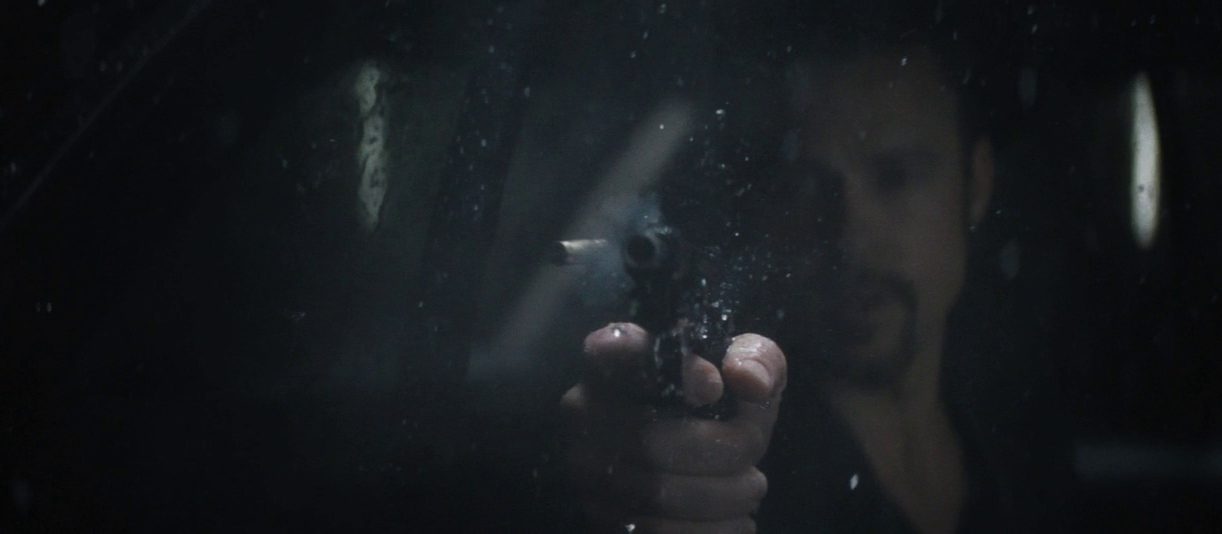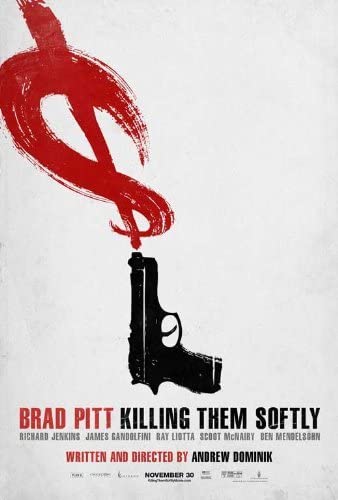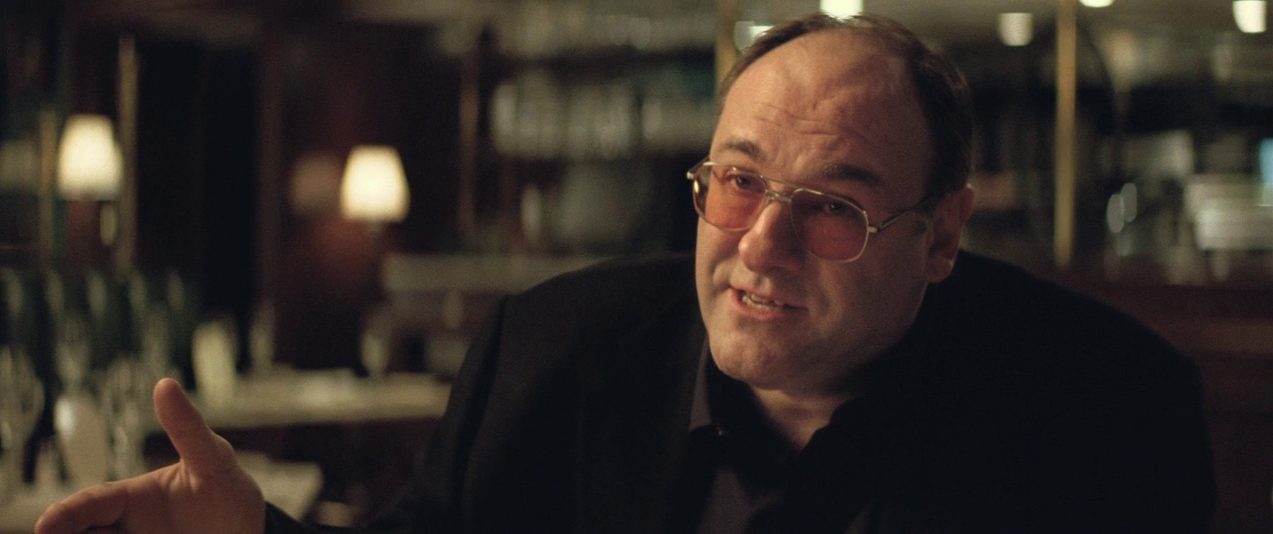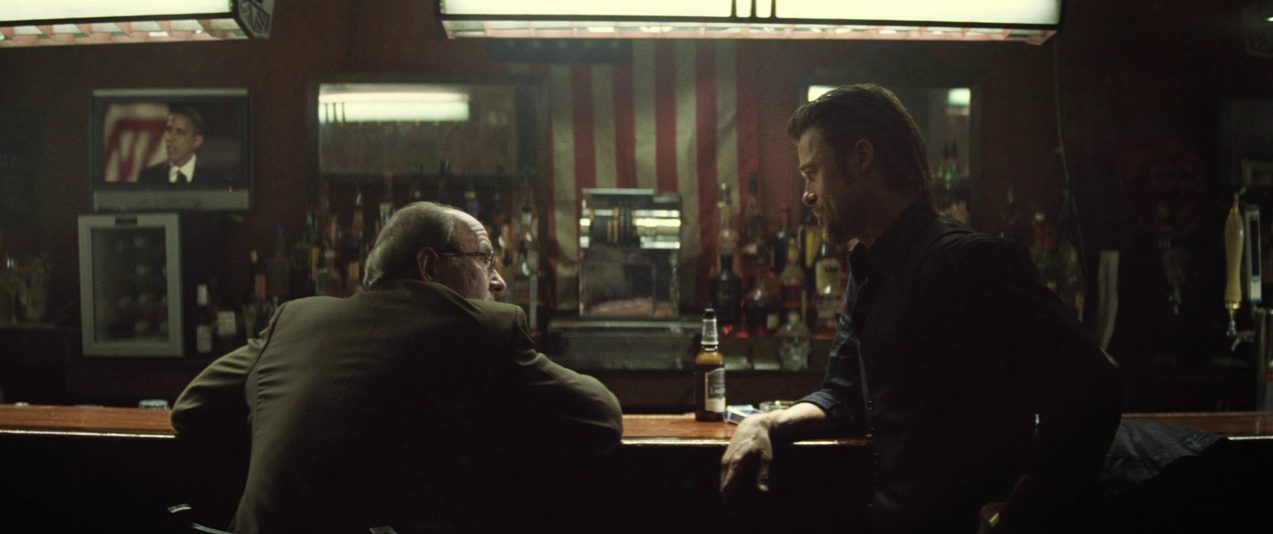

“You ever kill anyone? It can get touchy-feely. Emotional, not fun, a lot of fuss. They cry, they plead, they beg, they piss themselves, they call for their mothers. It gets embarrassing. I like to kill them softly, from a distance, not close enough for feelings.”
George V. Higgins was a crime fiction author known for authentic dialogue, stemming from his experience in various government jobs that positioned him in proximity to ruthless criminals. He was a lawyer and professor, and he sharpened his writing craft as a newspaper columnist before authoring then destroying a series of novels that were not up to his standards. He then officially debuted with The Friends of Eddie Coyle, a book where the story is largely conveyed through conversation. It was adapted for the screen in 1973 by Peter Yates. Nearly forty years later, another of his book’s was picked up for adaptation. The book’s called Cogan’s Trade, after it’s main character, Jackie Cogan, but Andrew Dominik’s film takes its name from a line out of Jackie’s mouth. In the hands of Dominik, Higgins’s story is brought to life with stylish violence and protracted conversations between a slew of talented cast members. Transported from Boston to post-Katrina New Orleans and set during the financial crisis in the leadup to the 2008 election, Dominik uses snippets of real political speeches and the words of Higgins’s characters to paint a dire picture of modern American society. It’s a brutal film, a crossbreed of Tarantino and Scorsese at their grittiest, and further establishes Dominik as a bona fide heavyweight auteur.
One of my favorite things about Dominik as a filmmaker is that he doesn’t feel the need to constantly be in the mix. At the time of this writing, more than two decades after his debut as a feature filmmaker, he’s only made two other features and a documentary about a Nick Cave album (for the record, the doc and the album are top notch). He’s an enigma, taking years to make films that get a lot of critical attention but don’t really stir up the masses. When Brad Pitt saw his debut film, Chopper, he reached out to Dominik and began talking collaboration. The involvement of Pitt is how the director’s masterful second film, The Assassination of Jesse James by the Coward Robert Ford, was greenlit with a $30M budget and filled out with a stellar cast. But studio execs are profit driven and have no taste for actual artistry, so they drove that thing into the ground. They forced edits, refused to promote it, and released it in only a few theaters. It’s like they were ashamed of it and wanted to keep it hidden. But, like, dudes, you already spent thirty million dollars making it, why not try to make some back by, you know, releasing the film? But Dominik stands by the theatrical cut and those who liked the film really like it. One of the people who knew that it was a masterpiece was Brad Pitt, who was unafraid to work with the director again even after the film flopped commercially. When Dominik texted him several years later and asked if he was interested in playing Jackie Cogan, the ink was reportedly dry in less than half an hour.

Like most of Higgins’s work, Cogan’s Trade has been accused of being light on plot. And it’s true that the gist of it is very simple. Basically, Markie Trattman (Ray Liotta), the host of high stakes backroom poker games, hires a couple of goons to rip off one of own games, then brags about it later once everyone has forgotten about all the money they lost. Squirrel (Vincent Curatola), a small-time mob boss, has the bright idea to rip off another of Markie’s games because everyone will assume it was Markie, Markie will be killed, and Squirrel will make out like the bandit he is. But things don’t quite go as planned, and the corporate mob sends in a cleaner to kick over some tables and ensure everyone gets what’s coming to them. The rest of the film is locution.
Like Jesse James, Killing Them Softly is a bit of an ensemble picture, and the cast here is very solid. In addition to the roles already mentioned, we’ve got Scoot McNairy as an ambitious young criminal, Ben Mendelsohn as a heroin-addicted dog thief, Richard Jenkins as a liaison between the mafia higher-ups and Jackie, and Sam Shepard as an enforcer (though Shepard is barely in the movie). Each of these guys hold their own, but I thought Liotta and Mendelsohn were particularly excellent. Liotta because he plays the role with a bit of a wink and helps set the tone with a little homage to his role in Goodfellas. He receives the beating that he meted out in that film, and the inevitable connections add a layer to his performance. Mendelsohn because he effectively makes Russell one of the most dislikeable characters in recent memory with very little screen time. Seriously, in the early-going of Killing Them Softly, I was so disturbed by Mendelsohn’s character that I was actually beginning to dread the rest of the film. So, if you’re getting hung up on the talk of prison rape and bestiality, I encourage you to skip ahead a little bit or just grit your teeth and get through it. There’s also an excruciating scene in which Russell uses heroin, but Dominik makes that all stylish with music and editing, and includes a narratively important conversation, so it’s easier to get through. I think the character grates on me because he is presented as a protagonist in early scenes. By cinematic convention, we’re inclined to pull for him, but his rough demeanor and perversion make that difficult. That gives rise to the question of who we are to “root” for in a world devoid of heroes. The answer is that we end up rooting for the coolest criminal, which is unsurprisingly Brad Pitt’s Jackie.

There is one more role that I haven’t mentioned yet that deserves attention. James Gandolfini—old Tony Soprano himself—plays a ruthless hitman that Jackie calls in to perform one of the hits so that Jackie doesn’t have to kill someone he knows. When Richard Jenkins’s liaison character and Jackie negotiate Mickey’s price we are led to believe Mickey will be a force of nature. But when we actually meet Mickey, we realize he is a washed up alcoholic with marital issues who needs the money from the job but is more interested in drinking and engaging with prostitutes than doing a hit. Just like Dominik subverts our expectations for Russell by using his early introduction as a way to make us despise him, he uses Mickey’s built-up reputation to flip our expectations when he turns out to be a sad sack. We never even see Mickey operate—after several revealing conversations between Mickey and Jackie, Jackie arranges to have Mickey arrested for his own good. But it is in those conversations that Gandolfini really shines, often performing in long, unbroken takes. These scenes stand on their own as brilliant little capsules, as Gandolfini rails against the ills of the world and Pitt listens in brooding frustration as he sees someone he respected in a dire state.

But of course the real stars of Killing Them Softly are Pitt and Dominik. The role of Jackie Cogan seems tailor-made for Pitt, with his slicked back hair and ominous speech pattern. His work here once again proves that he’s a great character actor when he puts his mind to it. (Other examples include Babel, Snatch, and Inglourious Basterds—and Jesse James, of course). I’m glad he digs Dominik’s work and wants to lend his talents to the director’s projects. Dominik, in addition to writing and directing his cast, does a lot of cool stuff with cinematography, slow motion, music, editing, scripting, timelines—the guy makes a convincing case to be considered among the elite. His story unfolds in the fashion of Tarantino, with lots of talking punctuated by brief moments of highly stylized violence, a self-assured style that could fail in lesser hands.
The intricately pieced-together story astutely draws parallels between the criminal underworld and the public financial crisis. In corporate America, losing your jobs means you get laid off and collect unemployment while feeling sorry for yourself; when your time runs out in the world of crime, they send in Jackie Cogan. Some characters can be viewed as stand-ins for political figures or institutions, but it’s not all cut and dry. In the final scene, the social commentary that has occurred in the background throughout the film is brought into full view when the liaison tries to shortchange Jackie due to the financial situation.

Don’t make me laugh. ‘We’re one people.’ It’s a myth created by Thomas Jefferson. My friend, Jefferson’s an American saint because he wrote the words, ‘All men are created equal.’ Words he clearly didn’t believe, since he allowed his own children to live in slavery. He was a rich wine snob who was sick of paying taxes to the Brits. So yeah, he wrote some lovely words and aroused the rabble, and they went out and died for those words, while he sat back and drank his wine and fucked his slave girl. This guy [Obama] wants to tell me we’re living in a community. Don’t make me laugh. I’m living in America, and in America, you’re on your own. America’s not a country. It’s just a business. Now fucking pay me.
Dominik pulls from a variety of sources for Killing Them Softly, but in its intricate construction the film becomes nothing other than an Andrew Dominik film. Many are sure to stick their noses up at the unconventional structure, unapologetic and cutthroat violence, and heavy reliance on dialogue—some of it downright filthy. For those who connect with the director’s style, though, the film is a real treat.